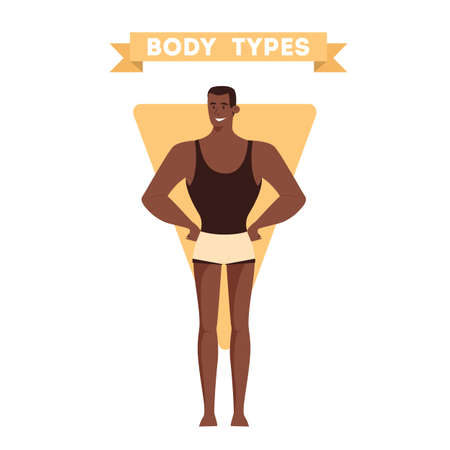The Allure of Detox Trends in the UK
In recent years, detox baths and saunas have become increasingly popular among Britons seeking a sense of balance and rejuvenation in their daily routines. From luxurious spas tucked away in the Cotswolds to urban wellness centres in London, these rituals are celebrated as opportunities to cleanse both body and mind. The British fascination with wellness is hardly new; after all, traditions like hot mineral springs in Bath and seaside retreats for “taking the waters” stretch back centuries. Today’s modern interpretations—whether soaking in Epsom salts at home or unwinding in a Nordic-style sauna—are embraced by those looking to combat stress, boost energy, and restore inner calm amidst busy schedules. It’s not just about physical benefits; there’s a strong cultural undercurrent too. Many in the UK view these rituals as mindful pauses, a way to step back from the constant hustle and focus on self-care, echoing the growing movement towards holistic wellbeing that values mental clarity as much as physical health.
2. What Do ‘Detox’ Baths and Saunas Claim to Do?
Across the UK, the wellness industry has enthusiastically embraced detox baths and saunas, with spas from London to Edinburgh offering a variety of treatments promising everything from glowing skin to enhanced wellbeing. But what exactly are these treatments claiming to deliver? Let’s unpack the most common promises made by spas, health influencers, and wellness advocates.
| Claim | Description | Common UK Marketing Language |
|---|---|---|
| Remove Toxins | Saunas and baths are said to help flush out toxins through sweating or mineral absorption. | “Draw out impurities”, “natural cleansing”, “purify your system” |
| Boost Skin Health | Advocates claim that heat and mineral soaks promote clearer, softer, and more radiant skin. | “Reveal glowing skin”, “restore natural radiance” |
| Support Weight Loss | Some believe regular sessions can aid metabolism and assist in shedding excess weight. | “Burn calories effortlessly”, “support healthy metabolism” |
| Relieve Stress & Improve Sleep | The relaxing environment is marketed as a way to reduce anxiety and improve sleep quality. | “Unwind naturally”, “encourage deep relaxation” |
| Soothe Aches & Pains | Heat therapy is often promoted for easing muscle tension and joint discomfort. | “Soothe tired muscles”, “relieve everyday aches” |
The UK wellness scene tends to emphasise a holistic approach—balancing physical rejuvenation with mental calm. Whether it’s a salt bath in a boutique spa in Bath or a Finnish-style sauna session in Manchester, these experiences are marketed as much for their lifestyle benefits as for specific health claims. Wellness retreats and influencers across Britain often weave in the language of ritual, mindfulness, and self-care, encouraging people to see these practices as essential parts of a balanced life rather than quick fixes. As we continue, we’ll explore whether there’s scientific substance behind these attractive promises.

3. The Science Behind Sweating It Out
When it comes to detoxification, the allure of sweating out toxins in baths and saunas is as strong in Britain as anywhere else. But what does the science actually say? The human body is equipped with a sophisticated system for dealing with toxins, primarily relying on the liver, kidneys, and digestive tract to filter and eliminate waste products. While sweating is often marketed as a means of expelling harmful substances, research suggests that the amount of toxins removed through sweat is minimal compared to what our organs achieve naturally.
Metabolism plays a central role here. Our metabolic processes are responsible for breaking down and converting toxins into forms that can be excreted safely—mostly through urine and faeces. Although trace elements of certain heavy metals and chemicals have been detected in sweat, studies indicate these make up only a tiny fraction of the bodys total toxin load. In other words, sitting in a sauna or soaking in an Epsom salt bath might help you feel refreshed or relaxed, but its unlikely to significantly impact your bodys detoxification capabilities.
That said, there are real benefits to enjoying a warm bath or sauna session. Increased blood circulation, temporary relief from muscle tension, and stress reduction all contribute positively to overall wellbeing. In the context of a balanced lifestyle—a key value in British culture—these rituals can enhance your sense of health without promising miracles they cant deliver. So while sweating it out may not provide a shortcut to detoxification, it certainly has its place within a holistic approach to self-care.
4. Common Misconceptions and Urban Myths
Heat therapies such as detox baths and saunas have long been shrouded in popular beliefs, especially across the UK, where a good soak or steam is almost a cultural ritual. However, its important to separate time-honoured tradition from scientific reality. Lets debunk some widespread myths and clarify what these therapies can—and cannot—do for our bodies.
Myth vs. Fact: Popular Beliefs About Detoxing with Heat
Common Belief |
The Reality |
|---|---|
“Sweating flushes out toxins.” |
The main role of sweat is to cool the body; only trace amounts of toxins are expelled this way. Your liver and kidneys do most of the detoxifying work. |
“A sauna session can cure a hangover.” |
While a steam may feel soothing, it doesn’t speed up alcohol metabolism. Hydration and time are still your best allies after a night out in London. |
“Detox baths help you lose weight.” |
Any weight lost during a bath or sauna is mostly water weight, not fat. Once rehydrated, those kilos return—no magic solution here! |
“Regular sauna use prevents illness.” |
There is evidence that regular heat therapy can support wellbeing, but it cannot replace a balanced diet, good sleep, and regular exercise as key pillars for health. |
Urban Myths and Social Media Influence
Social media platforms are awash with influencers touting miraculous results from ‘detox’ regimens involving Himalayan salts or eucalyptus-laden steam rooms. While these rituals can be relaxing, they shouldn’t be confused with medical treatments. It’s vital to be wary of trends promising quick fixes or total body cleanses—often, these claims lack robust scientific backing.
The British Context: Tradition Meets Science
From historic Roman baths in Bath to modern urban spas in Manchester, the UK has always embraced the healing powers of heat and water. However, while enjoying a relaxing bath or sauna fits beautifully into a balanced lifestyle, relying on them for detoxification overstates their benefits. Appreciating the comfort and relaxation they provide is far more aligned with current evidence than expecting them to work wonders for your internal health.
5. The Real Benefits: Beyond Detoxification
When it comes to baths and saunas, the conversation often gets bogged down by claims of detoxification. However, the real beauty of these practices lies in their proven mental and physical wellness benefits, which extend far beyond any supposed toxin removal. In the UK, with its busy urban lifestyles and unpredictable weather, finding moments of calm and comfort is essential for maintaining balance.
Relaxation as a Ritual
A warm bath or session in the sauna provides a sanctuary from daily stresses. The enveloping heat soothes tense muscles, encourages deep breathing, and creates space for mindfulness—a practice that many Britons are embracing as part of their regular self-care routine. Its not just about feeling warm; its about carving out a ritual that signals your mind and body to unwind.
Stress Reduction Backed by Science
Numerous studies highlight how both baths and saunas can lower cortisol levels, the hormone associated with stress. This reduction leads to improved mood and better sleep quality—two things that everyone, from Londoners battling the morning commute to countryside dwellers enjoying quiet evenings, can appreciate. These effects are especially relevant in the UK, where seasonal changes and busy work schedules can take their toll on mental health.
Supporting Physical Wellbeing
Beyond relaxation, regular use of saunas has been linked to cardiovascular health benefits, such as improved circulation and lower blood pressure. Baths can also ease minor aches and pains, making them particularly popular among those who enjoy walking or cycling through Britain’s parks and trails. For many, these practices become part of an overall lifestyle that values gentle movement, mindful rest, and connection to oneself.
In summary, while detox claims may be questionable, there is no doubt that baths and saunas offer genuine support for both mind and body. By focusing on these authentic benefits—relaxation, stress reduction, better sleep, and physical comfort—Brits can enjoy these timeless rituals as an integral part of a balanced life.
6. Healthy Alternatives for Everyday Balance
While the debate around detox baths and saunas continues, there is much to be said for embracing holistic lifestyle practices that are deeply rooted in British culture and genuinely promote wellbeing. Instead of relying solely on quick fixes, consider these time-honoured habits that foster balance in everyday life.
Embracing the Great Outdoors
Britain is blessed with a wealth of green spaces, from sprawling national parks to charming local commons. Regular walks in nature—whether its a ramble through the Lake District or a stroll along the Thames—support both mental clarity and physical health. The simple act of being outdoors reduces stress and encourages gentle movement, which aids the body’s natural processes far more sustainably than short-term detox trends.
The Power of a Cuppa
The ritual of tea drinking goes beyond mere refreshment; it offers a mindful pause in our busy schedules. Opting for herbal infusions like chamomile or nettle can gently support digestion and relaxation. Sharing a pot of tea with friends or family also strengthens social bonds, which are essential for emotional resilience.
Balanced Eating, British Style
Instead of restrictive diets, focus on balanced meals inspired by British classics: think oats for breakfast, seasonal root vegetables, oily fish like mackerel, and plenty of fresh produce from local markets. Such choices provide vital nutrients that support the body’s natural ability to maintain equilibrium without extreme measures.
Mindful Movement and Community Connection
From yoga classes in village halls to joining a local football club or participating in traditional Morris dancing, movement needn’t be intense to be effective. Activities that bring people together foster not only fitness but also a sense of belonging—a cornerstone of holistic health.
In summary, while detox baths and saunas may have their place as occasional indulgences, lasting wellbeing comes from nurturing daily habits rooted in balance, community, and the rich tapestry of British life.


